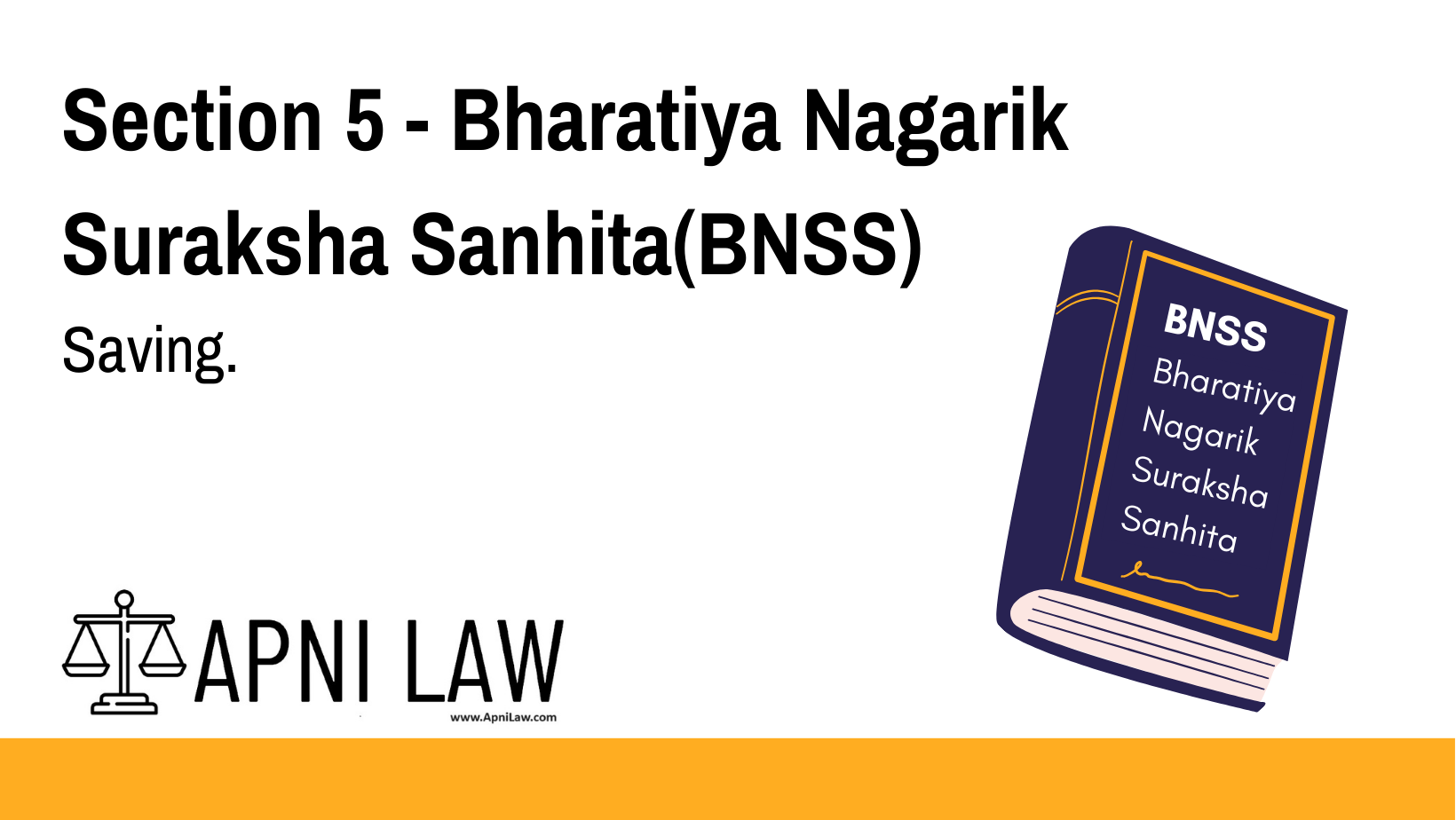Code:
Nothing contained in this Sanhita shall, in the absence of a specific provision to the contrary, affect any special or local law for the time being in force, or any special jurisdiction or power conferred, or any special form of procedure prescribed, by any other law for the time being in force.
Explanation:
This section of the BNSS emphasizes the principle of lex specialis derogat legi generali. It essentially states that the general provisions of the BNSS do not override any existing special or local laws, specific jurisdictions, or specialized procedural rules established by other laws.
Illustration:
Let’s say a specific law governing the functioning of a particular institution (e.g., a university) prescribes a unique procedure for handling disciplinary actions against its students. This special law would continue to govern those disciplinary proceedings even after the implementation of the BNSS, as the BNSS doesn’t intend to modify or supersede specific rules designed for particular situations.
Common Questions and Answers:
Q: What constitutes a “special law”?
A: A special law is one that deals with a specific subject matter or area. It often has more narrow scope than the general provisions of the BNSS. It might focus on a particular institution, industry, or category of offenses.
Q: How does this section relate to the principle of “harmony between laws”?
A: This section promotes harmony by ensuring that the BNSS coexists with other existing laws. It acknowledges the need for specialized rules in certain contexts and avoids unnecessary conflict or redundancy.
Q: Does this mean that the BNSS is not applicable in some situations?
A: No, the BNSS remains applicable as the general law. However, where a specific provision in another law directly governs a particular situation, the special law will prevail.







